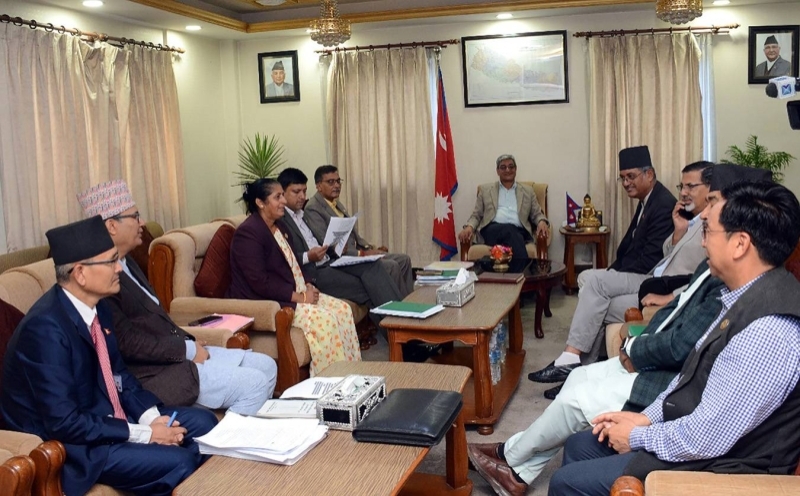
KATHMANDU, AUGUST 1
The three major political parties have reached an agreement on contentious issues to conclude the transitional justice process as per the Comprehensive Peace Agreement (CPA) signed between the government and the then-rebellion CPN (Maoist).
The taskforce, comprising leaders from the Nepali Congress, CPN-UML, and CPN (Maoist Centre), has agreed on pressing issues related to transitional justice, such as the interpretation of conflict-era cases, relief, compensation, reparation, and justice delivery.
Transitional justice has been a long-pending issue in Nepal's peace process, garnering keen interest from both national and international communities. Maoist Centre leader and taskforce head Janardan Sharma shared that the major political parties have resolved the critical issues of the peace process and signed a four-point agreement. "Following rigorous discussions, we have concluded the four contentious issues," he stated.
According to the agreement, intentional or arbitrary killings will be defined as murder; families of security personnel who lost their lives in the conflict will receive relief, compensation, and reparation, and a similar scheme is planned for disqualified combatants.
Additionally, if the victim does not consent to a conflict-era case, it will be referred to the Attorney General. Such cases will now be adjudicated based on the existing principles of criminal justice, but in line with transitional justice.
The taskforce's report will be submitted to the top leaders and forwarded after the Law, Justice, and Human Rights Committee of the parliament takes ownership. Taskforce member Sharma expressed satisfaction with the achievement.
Home Minister and taskforce member Ramesh Lekhak emphasized that the political parties came together to resolve the remaining tasks of the peace process. "It is an achievement. Now, we are on the same footing to finalize these issues," he added.
UML Chief Whip and taskforce member Mahesh Bartaula stated that legal hurdles would be cleared to conclude the peace process. "It is a positive development. It is neither a win nor a loss, but a resolution to finalize the peace process," he observed.
According to Bartaula, the agreement is based on the principles of transitional justice and national and international standards, with victims' concerns at the center. Decisions made by the Supreme Court have also been considered.
The agreement aims to bring together victims and perpetrators in a way that prevents future conflicts. Victims will be ensured justice, and perpetrators will be held accountable.
This agreement on a significant backlog of the peace process has been seen as a measure to alleviate conflict-era wounds. Seventeen years after the CPA was signed, the major parties have finally reached a deal to fully settle the peace process.
Despite the formation of two transitional justice mechanisms and the appointment of officials multiple times since the CPA, political differences had previously hindered the finalization of the peace process.












